The last time we all agreed on a Worst Year Ever it was 2016. That was the year of the Zika virus and a series of global terror attacks; it was the year of mass shootings, including the one at the Pulse nightclub in Orlando and the police murder of Philando Castile during a vehicle stop in Minnesota, among many others; David Bowie and Prince died; the planet warmed; and Donald Trump and Mike Pence were elected to the White House.
Then along came 2020. Take all the fear, anguish, racial injustice, police brutality, political division, disinformation and climate catastrophes of 2016 and heap on an even deadlier global pandemic that drove most of us into isolation. This year may not be the actual worst year in human history (there’s just too much competition for the title), but it’s a strong contender.
And yet, and yet: Not everything was terrible in 2020. The thing about disasters that bring us to our knees is that they can also bring out our best. Our generosity. Our creativity. Our conviction. Our courage. Our resilience. Our love. Our joy. And, thankfully, there were plenty of those qualities on display this past year.
So, as we kick the trash heap that was 2020 to the curb, here’s some of the ways we gave, received and found joy over these past 12 months.
We learned to be together while we were home alone
After queer social spaces shuttered almost overnight in the spring, DJs, performers and promoters launched online dance parties, with Toronto’s Club Quarantine leading the way on Zoom. In March, Club Q co-founder Ceréna Sierra spoke with Xtra about the necessity of keeping club life going during the pandemic. “As queer people, we know that the club has been one of the only true safe spaces out there. So when you start to eliminate queer clubs, you start erasing who we are as a community.”
LGBTQ2S+ folks found other ways to build community care networks online, too. Students and teachers migrated in-person Gender and Sexuality support groups to video chats. Pride events went virtual. And queer gamers built gay utopias. During the first weeks of lockdown, Xtra senior editor Erica Lenti was one of many who sought solace in Animal Crossing: New Horizons. “There’s no better distraction from the uncertainty of COVID-19 than the unreality of New Horizons,” she wrote, “a world where illnesses are non-existent and your animal best friends send you gifts just because (and no one hoards toilet paper).”
People took to the streets in support of racial justice and Black Lives Matter
Multiple incidents of police and civilian violence against Black and Indigenous people prompted demonstrations around the world, while the case for defunding police moved from activist networks into mainstream conversation. In Brooklyn, some 15,000 people turned out for a Black Trans Lives Matter rally and march in June. People found ways to speak out against systemic oppression—all while abiding public health protocols—in millions of inspiring acts of solidarity.
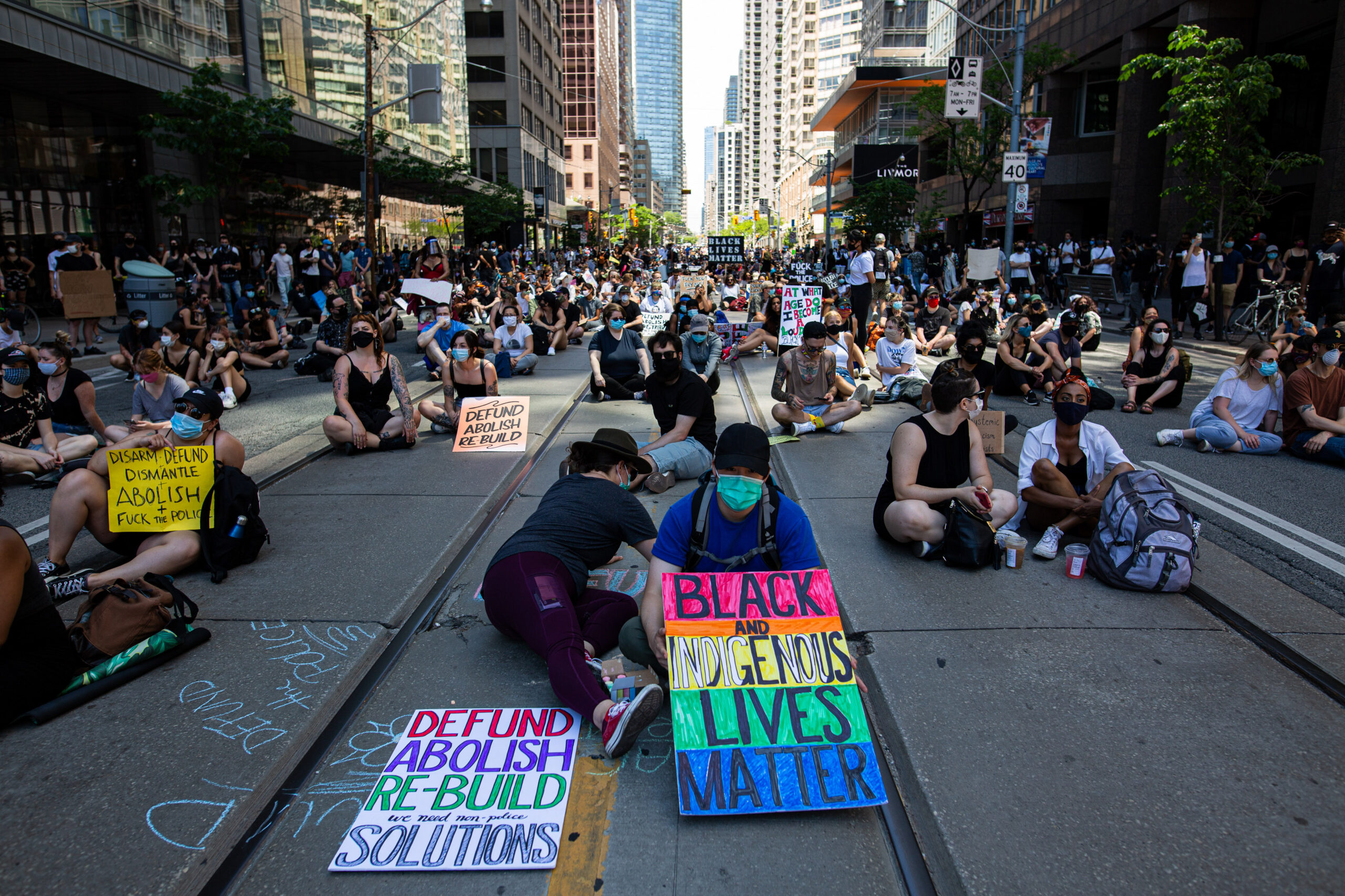
Credit: Nick Lachance
Pascale Diverlus, a co-founder of BLM-Toronto, reflected on the power of protest during the pandemic and catalogued the myriad ways people supported the demonstrations. “Black people are facing two public health crises simultaneously: The ongoing COVID-19 pandemic and more than 400 years of anti-Black racism,” she wrote. But then added that “even in crisis conditions, we have kept—and will always keep—each other safe.”
Black LGBTQ2S+ YouTubers made us laugh (actually laugh! in 2020!)
In the summer, seeking relief from the sense that we were “living in a dystopian blockbuster,” Xtra editor-at-large Tre’vell Anderson led us down a rabbit hole of queer and trans YouTube creators of colour who made them smile—reminding us that laughter is its own form of resistance.
Our queens showed up for us, part one
Even the queer entertainment juggernaut that is RuPaul Charles’ Drag Race empire had its wig knocked askew by the coronavirus pandemic—but not for long. In a year when so many of us craved escapist glamour and untucked drama, the franchise kept us gagging. The shutdown of TV production meant the finale of RuPaul’s Drag Race Season 12 had to pivot to a virtual, at-home lip sync for the crown and it turned out to be a DIY delight, with a win for Jaida Essence Hall. The production plug was also pulled on the final episode of the surprisingly moving spin-off We’re Here, but the replacement episode of outtakes, remote interviews and a group lip sync to Alessia Cara’s “Scars to Your Beautiful” gave us the warm fuzzies. And so did the inaugural season of Canada’s Drag Race (shot prior to COVID-19). The scrappy, low-budget newcomer delivered a hugely talented cast and crowned the charismatic performer Priyanka as its first Queen of the North.
Our queens showed up for us, part two
Look, they’re queer icons for a reason. Mariah Carey blessed us with one of the best celebrity memoirs of all time, The Meaning of Mariah Carey, as well as a new compilation album and a Christmas special featuring a high-camp performance of “Oh Santa” with Ariana Grande and Jennifer Hudson that made the yuletide oh so gay. Diva emeritus Dolly Parton continued her lifelong streak of being fabulous by speaking out for racial justice and donating a million dollars to research that helped develop one of the novel coronavirus vaccines—because of course she did.
Our queens showed up for us, part three
“This is awful. It’s still March. How many days are in March?” Lying curled up on his side, depressed and with bed head, character actor and unlikely Instagram star Leslie Jordan was all of us this spring, taking to social media to document life under quarantine. Let his charming, homey and hilarious posts be a lesson for oblivious famous folks on how to engage with social media during a pandemic.
LGBTQ2S+ candidates triumphed in the U.S. election…
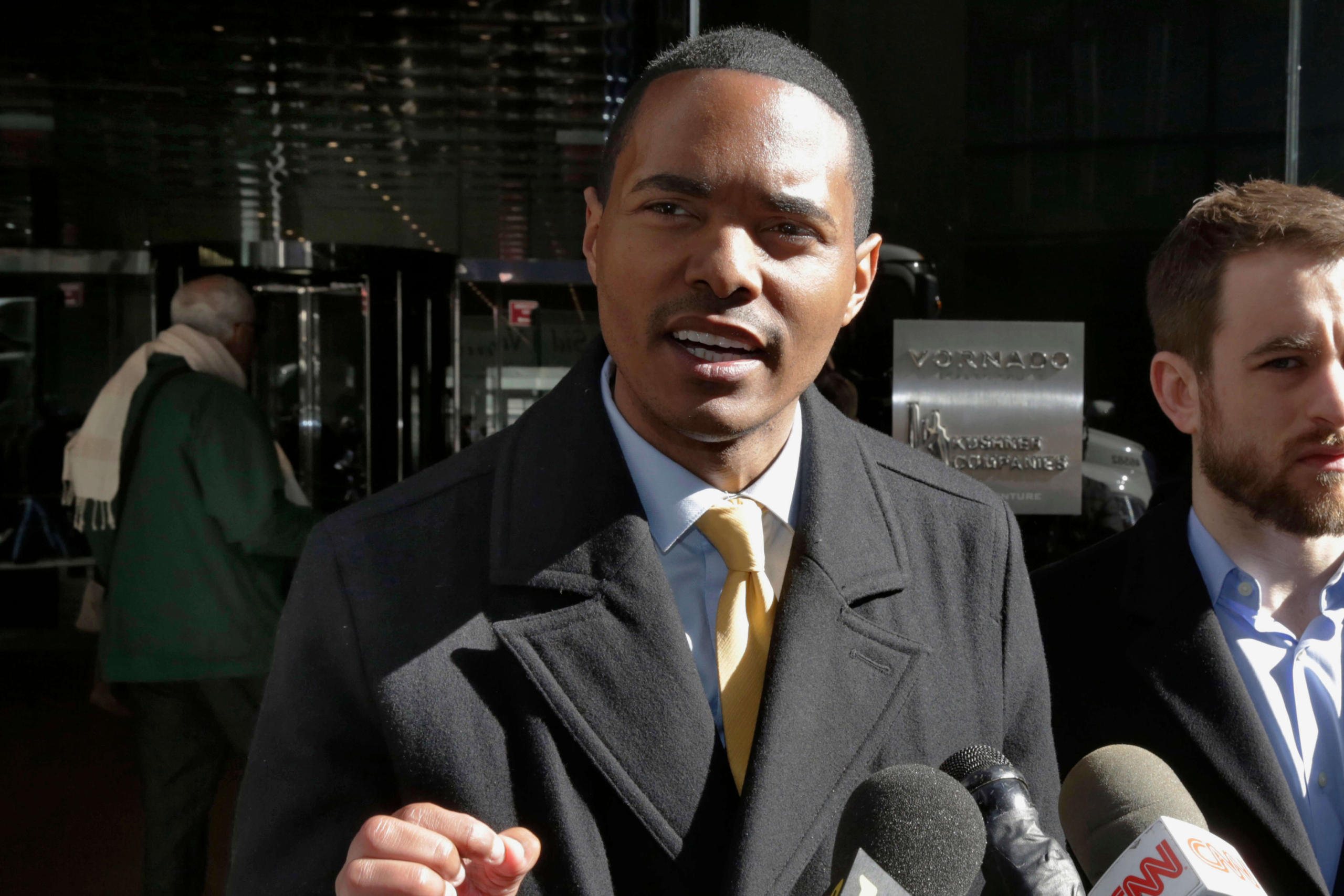
Credit: AP Photo/Richard Drew
These victories may have been overshadowed by the nail-biting race at the top of the ticket, but they were momentous and history-making. Among them: Democrats Ritchie Torres and Mondaire Jones became the first-ever Black gay men to win seats in the New York state house; Michele Rayner-Goolsby, the first Black queer woman to serve in Florida’s state legislature; Stephanie Byers, a member of the Chickasaw Nation, became the first-ever trans Indigenous person elected to Kansas’s house of representatives; and Delaware Democrat Sarah McBride became the country’s first-ever trans state senator. “I hope tonight shows an LGBTQ kid that our democracy is big enough for them, too,” McBride tweeted after her win.
…and even when they lost, they also kinda won?
Anarchist and satanist trans Republican Aria DiMezzo was a longshot candidate for sheriff of New Hampshire’s Cheshire County, but we admired her chutzpah. (She was for tax cuts, gun rights and smaller government—and her campaign slogan was “Fuck the police.”) She fell far short of her Democratic opponent, garnering 7,950 votes to his 27,674. Still, she handled her defeat with more grace than some other Republicans who lost their race, telling the local press: “Twenty-five percent was an impressive showing for a well-known satanist anarchist trans woman, and I think it bodes well for the future.”
Elliot Page introduced himself to the world
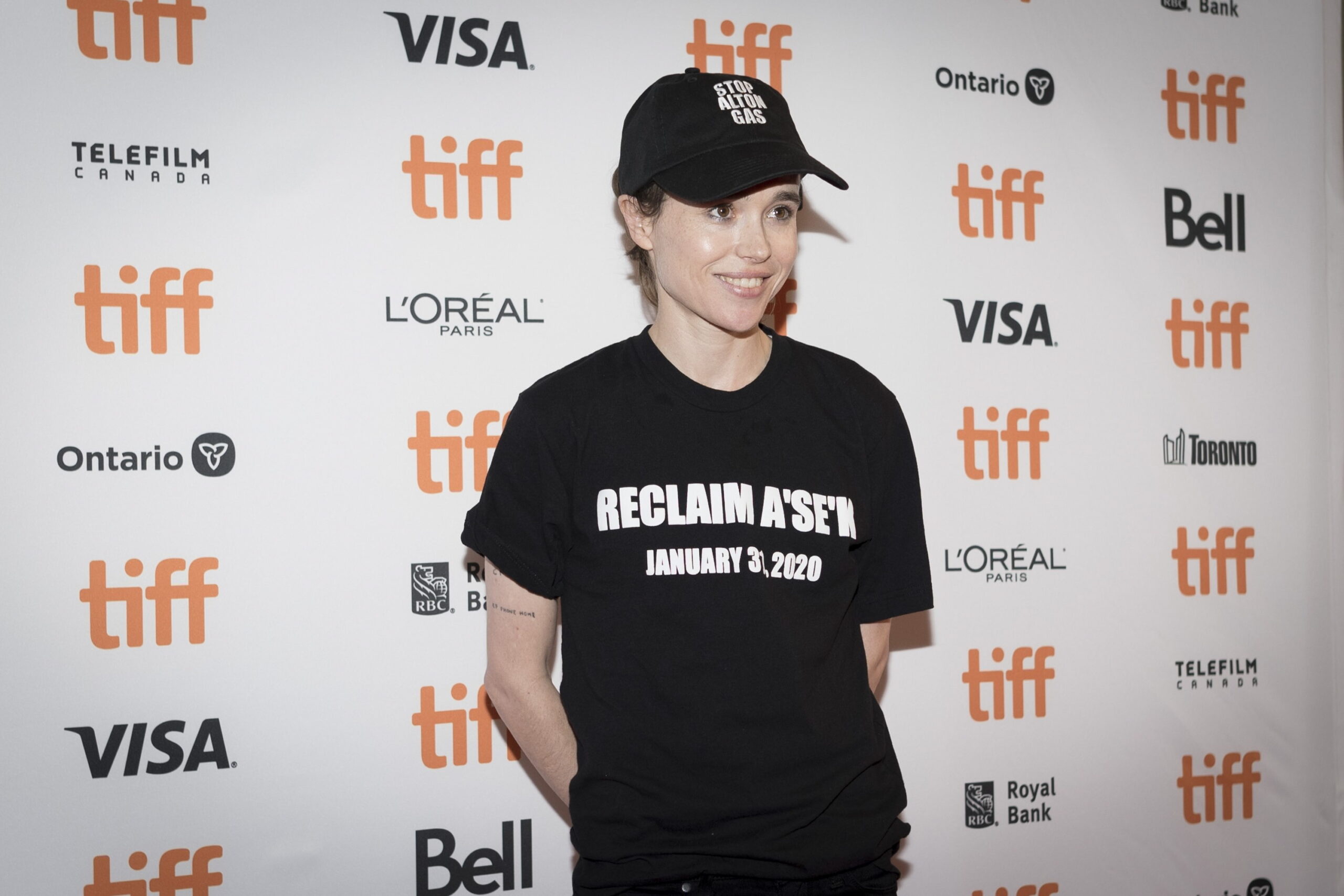
Credit: The Canadian Press/Tijana Martin
Showcasing the same dignity and humility he employed when he came out as queer in 2014, actor and activist Elliot Page announced his trans identity and new name in a moving post on Instagram in December: “I can’t begin to express how remarkable it feels to finally love who I am enough to pursue my authentic self. I’ve been endlessly inspired by so many in the trans community. Thank you for your courage, your generosity and ceaselessly working to make this world a more inclusive and compassionate place. I will offer whatever support I can and continue to strive for a more loving and equal society.” Congratulations, Elliot. We swoon.
Saucy gay pride drowned out white supremacist hate
🇨🇦🏳️🌈 #ProudBoys pic.twitter.com/rEFL7xIqXu
— Canadian Forces in 🇺🇸 (@CAFinUS) October 4, 2020
At the first U.S. presidential debate, Donald Trump mentioned the far-right extremist group Proud Boys, causing searches for the group to soar. In response, thousands of gay men posted pictures of themselves kissing, hugging and being otherwise adorable alongside the hashtag #ProudBoys. It was a fun, sexy reprieve from timelines full of trolling and despair—and the endless scroll of gay guys flaunting their queerness was the perfect rebuke to the toxicity of the Proud Boy brand of “masculinity.”
Queer love gave us major feels
There is perhaps no force quite as powerful as queer love—the magical, butterflies-in-your-stomach emotion that’s driven decades of LGBTQ2S+ activism. We’ve weathered many crises to show our love, and this year’s global pandemic has proven no different.
Take Bri Houk and Lindsey Leaverton, a Texas couple with plans for a lavish wedding at an Austin mansion. Those plans were scrapped when COVID-19 hit—but that didn’t stop the pair from saying “I do.” Instead, they had their guests join them at a drive-in theatre. “There is nothing that can stand in the way of love, as cheesy as it sounds,” Leaverton told Xtra.
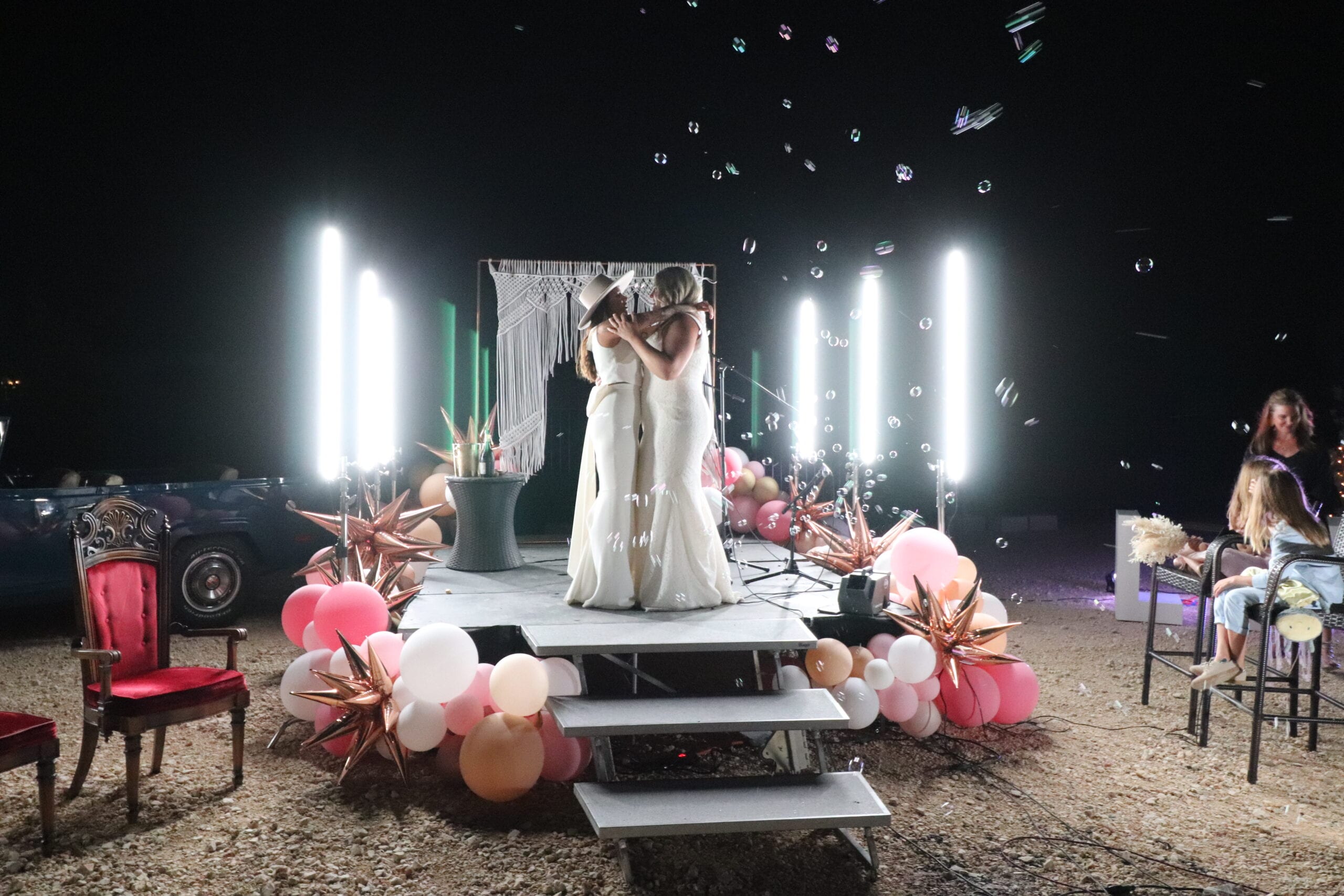
Credit: Courtesy Tania Ortega
That was a sentiment shared by Jonathon Wonders and Jason Melcher, a Pennsylvania pair who planned a last-minute wedding just days before the U.S. presidential election. Fearing a Donald Trump re-election, Melcher and Wonders tied the knot on Halloween night in a small, at-home ceremony. “I still have concerns that [the government or courts] might say someday that they don’t legally recognize any of these [queer] marriages,” Wonders told Xtra. “Now I can say that we’re married no matter how they view it.”
They protested and made it fashion
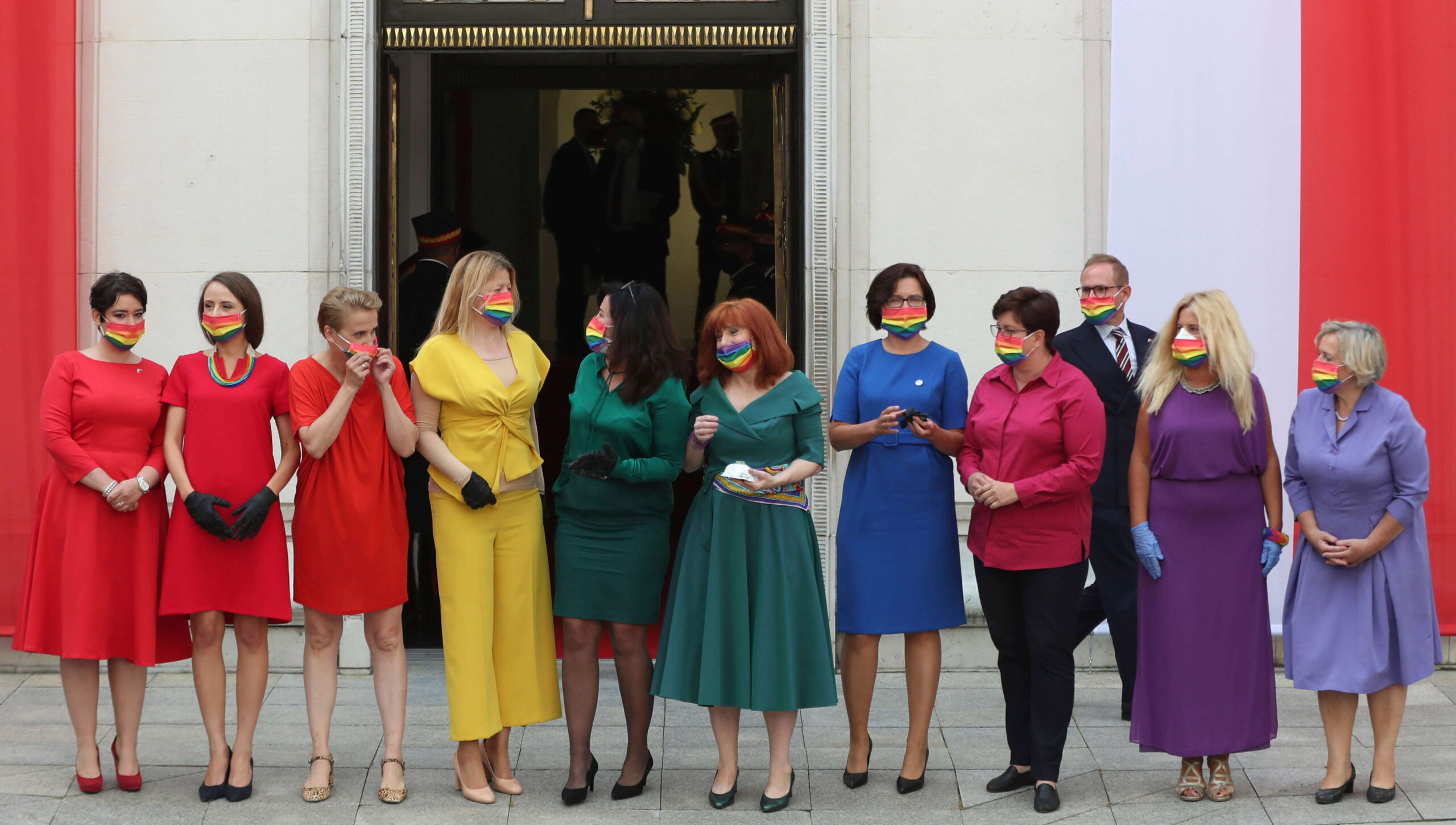
Credit: AP Photo/Czarek Sokolowski
LGBTQ+ people remain under threat in Poland, where religious and conservative groups continue to wage campaigns of discrimination and hate. President Andrzej Duda has said that “LGBT are not people; they are an ideology” and added that this ideology was “even more destructive” than communism. When Duda was sworn in for a second term in August, several progressive opposition legislators made both a political and fashion statement by showing up in outfits in the colours of the rainbow, complete with coordinating masks. That’s what we call allyship.
The smart, rad—and, let’s be honest, hot—athletes of the WNBA
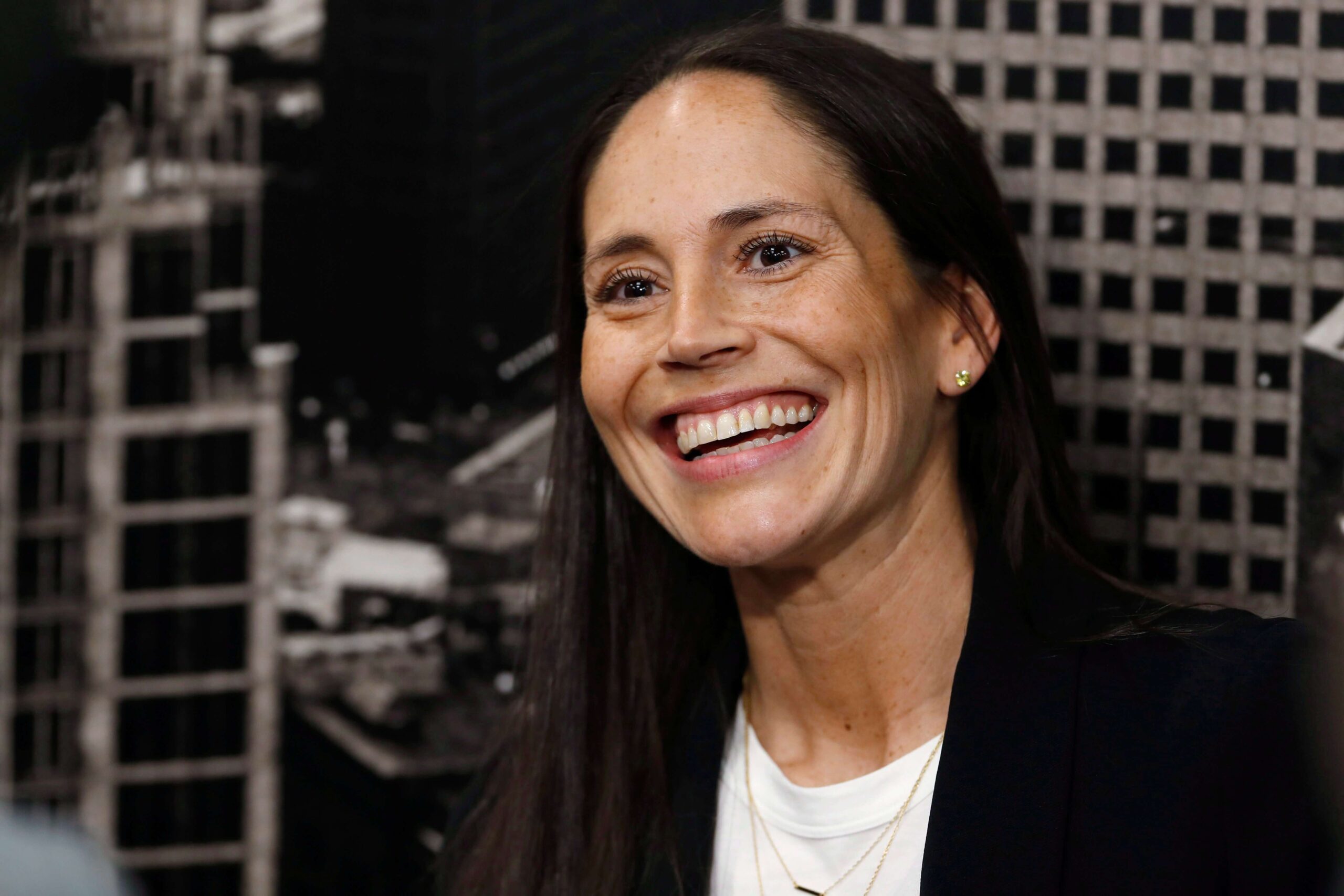
Credit: AP Photo/David Zalubowski
The women’s elite basketball league gets a fraction of the attention the NBA does, and yet this season in the “wubble” generated career highs, record-smashing feats and powerful political engagement. The players partnered with Kimberlé Crenshaw’s “Say Her Name” campaign, dedicated their season to Breonna Taylor and honoured Black trans lives. Out front were many of the WNBA’s openly LGBTQ2S+ players, including Layshia Clarendon, Diana Taurasi, DeWanna Bonner and Sue Bird. At a time when the news was consumed by violence, illness and death, it gave us goosebumps to watch thriving, joyful Black and queer women deliver pure athletic excellence.
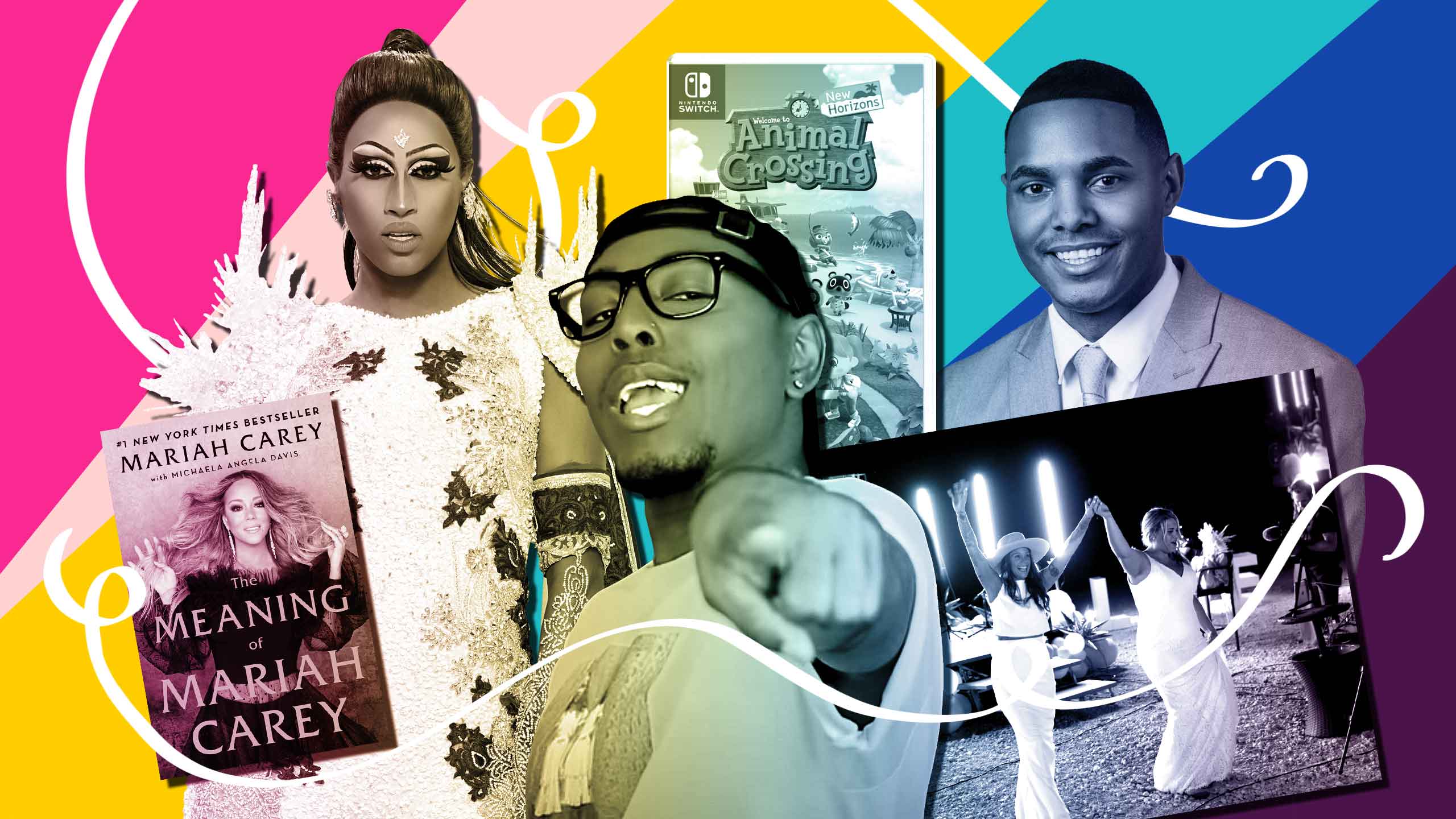

 Why you can trust Xtra
Why you can trust Xtra


